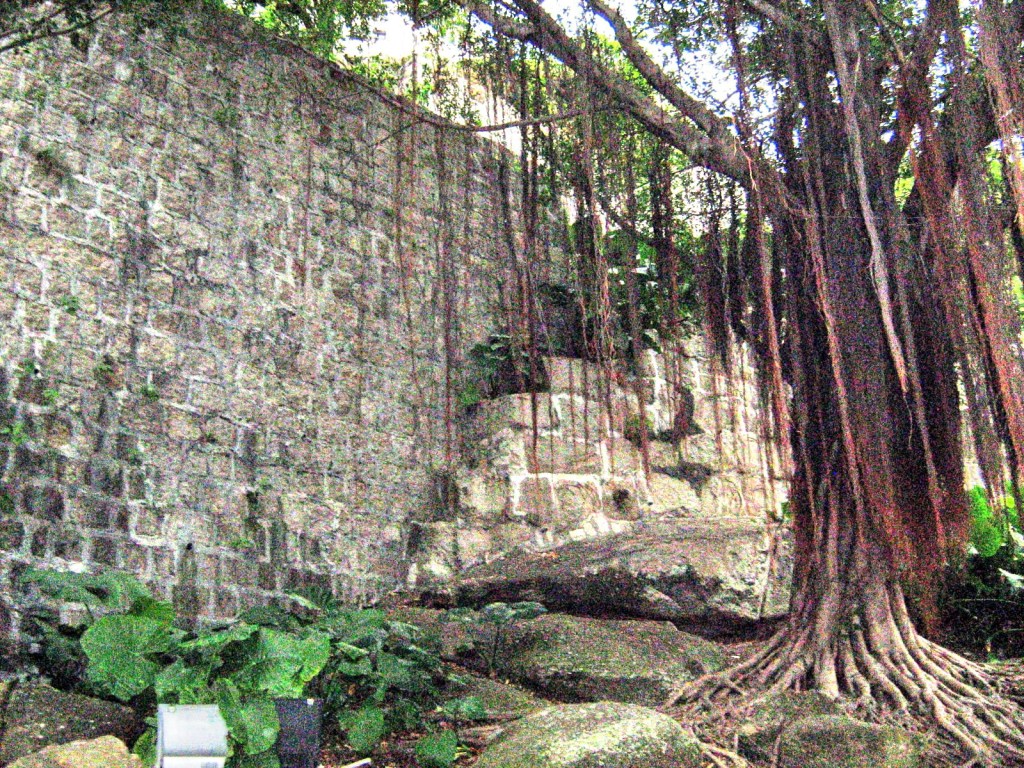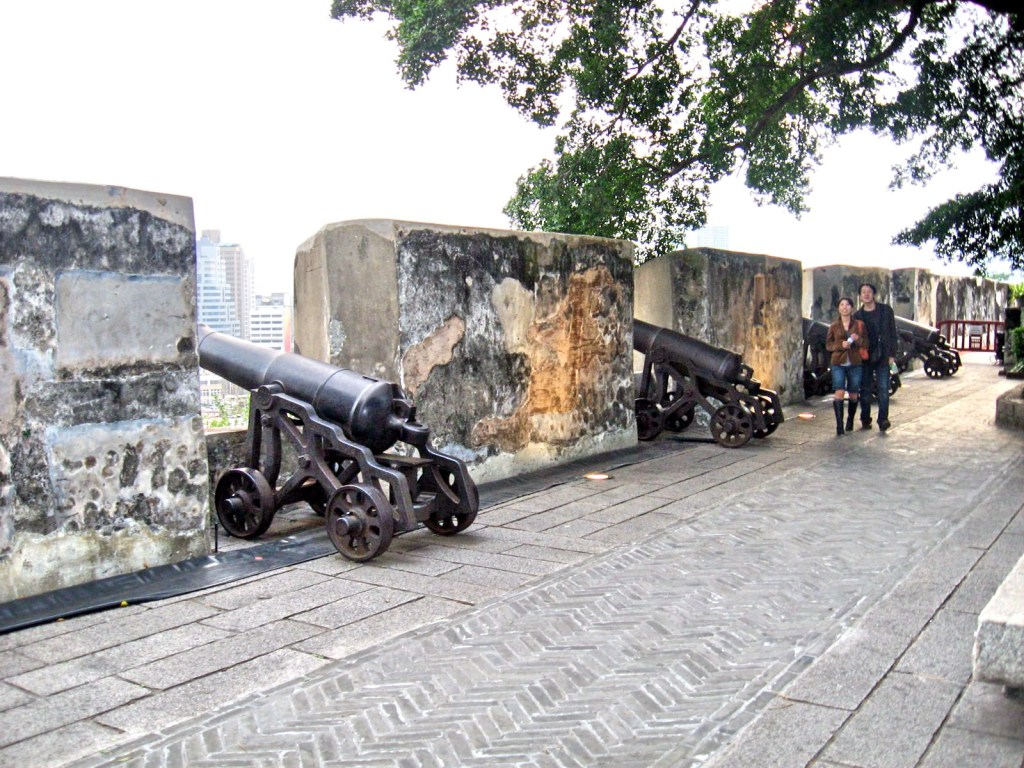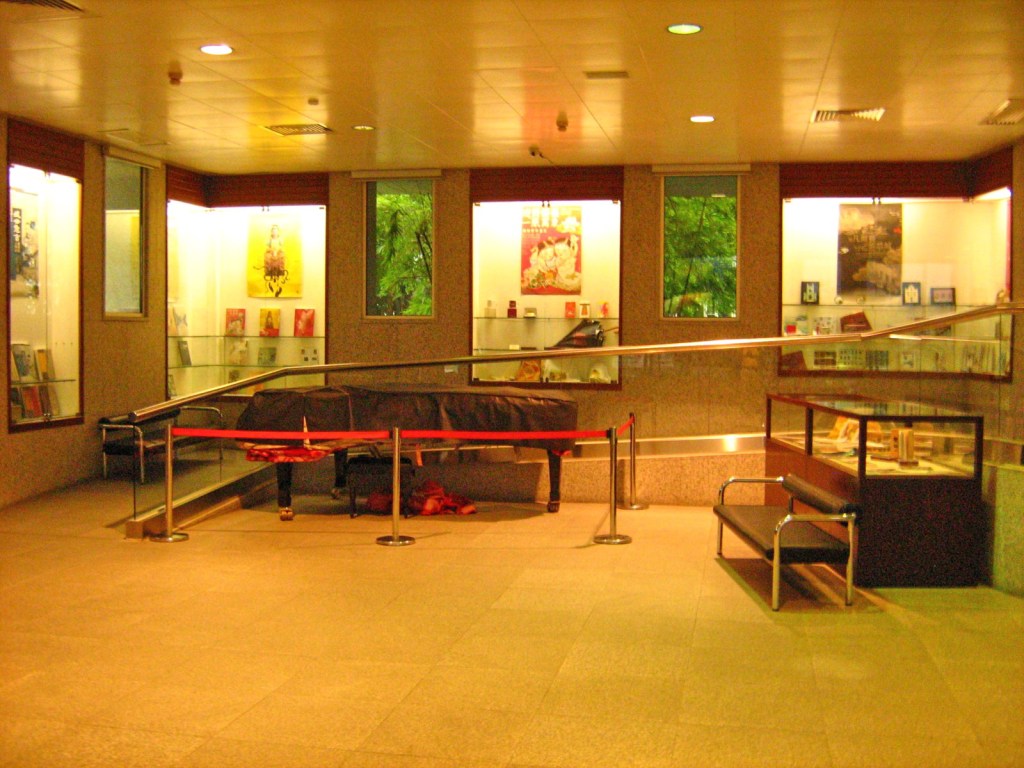From St. Anthony Church, Jandy and Cheska, and I walked to Mount Fortress (Fortaleza do Monte), one of Macau’s fortresses that give parts of city an old European skyline. From the fort’s vantage point, we easily visualized how effectively the forts covered all approaches to Macau. As with forts in Europe, those in Macau stood on stone foundations, with many of the walls differing considerably. They were made with chunambo (said to be able to withstand cannonballs), a mixture of earth, straw, lime and oyster shells, tightly packed in layers between strips of wood.
The approximately 8,000 sq. m., trapezoid-shaped Mount Fortress, strategically located on a hill top 52 m. above sea level, was built from 1617 to 1626 to protect the Porto Interior (Inner Harbor), the Praia Grande Bay and, to a lesser extent, the Porto Exterior (Outer Harbor) and the Chinese border. The city’s principal military defense structure, it was crucial in successfully holding off the attempted Dutch invasion of Macao in 1622.
The fort was equipped with cannons, military barracks, well and an arsenal that held sufficient ammunition and supplies to endure a siege lasting up to 2 years. Its 4 corners protrude to form bulwarks. The northeastern, southeastern and southwestern walls are built on 3.7-m. wide granite bases. The walls, 9 m. high narrowing upwards to 2.7 m. wide at the top, are made of solid rammed earth, further strengthened by a thick stucco of ground oyster shells.
The parapets were crenelated for the installation of 32 cannons and the two corners of the southeast wall have watchtowers. The walls facing the Chinese mainland do not have any battlements, indicating that the fortress was built only for defense against attacks from the sea.
On April 18, 1998, the 2,800 sq. m. Macao Museum was installed at the site, consisting of 2 underground levels and a third one above the fortress’ top platform following the location, volume and design of the old military barracks that existed at the site before the area was demilitarized in 1965. The museum presents the history of the city and territory of the former Portuguese colonyof Macau.





